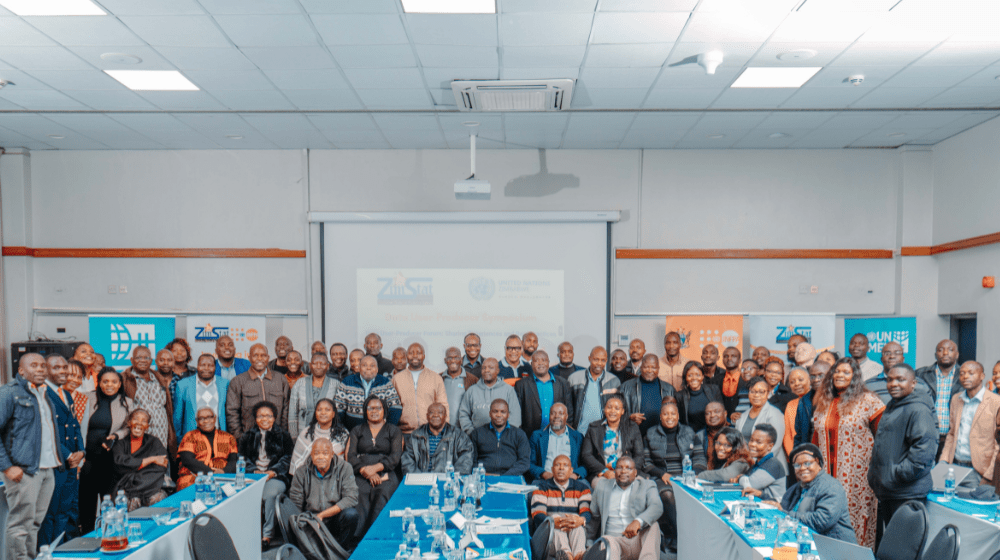The Data User-Producer Symposium convened by the Zimbabwe Statistical Agency (ZIMSTAT) and the United Nations from 10-13 June concluded with calls by key stakeholders for harnessing the power of data, for greater investment in Data for Development for transformative and sustainable development.
The symposium brought together stakeholders from government, civil society, academia, and the private sector under the theme: "Data User-Producer Forum: Sharing Experiences and Best Practices".
The symposium sought to discuss, share experiences, best practices and make recommendations to address data needs arising from the Government's economic blueprint, National Development Strategy 1 (NDS1) and its contribution to achieving the Sustainable Development Goals (SDGs) as well as on development agendas like Agenda 2030 and Agenda 2063.
In opening remarks at the symposium ZIMSTAT Acting Director General Mr Aluwiso Mukavhi said adequate investments must be made to ensure the availability and use of data for policy formulation and decision making.
“The successful implementation of the third National Strategy for Development of Statistics (NDSSIII) 2021-2025 will depend on timely and adequate provision of financial, technical and human resources,” he said. “It is therefore crucial for the Government and development partners to commit themselves to NSDS III implementation.”
In a speech read on his behalf by UNFPA Representative Ms. Miranda Tabifor UN Resident Coordinator and Humanitarian Coordinator Edward Kallon emphasised the importance of innovative data approaches.
“Adopting better approaches to data will lead to improved outcomes for everyone in Zimbabwe,” he said. “By leveraging data, together we can make informed decisions that drive sustainable development, reduce inequalities, and foster economic growth. Robust data systems are indispensable for translating the vision of Agenda 2030 into reality, ensuring that no one is left behind.”
Also speaking at the event ZIMSTAT Board Chair Mr. John Mafararikwa emphasised the importance of high-quality statistics.
"Statistics provide the evidence base for sound policy and programme formulation and implementation. They also enable the assessment and monitoring and evaluation of these policies and programmes,” he said.
As the co-chair of the Data for Development and Innovation Working Group, UNFPA actively participated in the symposium, emphasising the importance of data in advancing Sexual and Reproductive Health and Rights (SRHR) and gender equality.
“UNFPA remains committed to supporting Zimbabwe's efforts to strengthen its data ecosystem,” said Ms. Tabifor. “By working closely with ZimStat, government bodies, and civil society organisations, UNFPA will continue to advocate for data collection and analysis that is gender-responsive, inclusive, and focused on leaving no one behind.”
By Rufaro Kaviya





